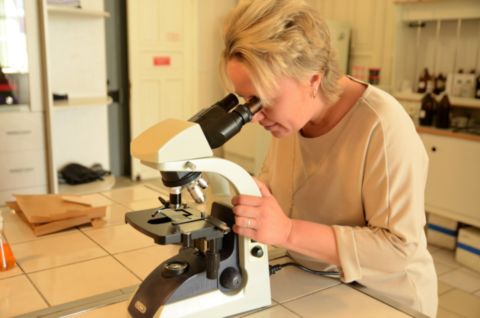Within the frameworks of a grant, supported by the Russian Science Foundation, scientists of the SUSU School of Medical Biology have begun developing plant-based probiotic food products. This will allow people who do not consume dairy products to receive the micronutrients necessary for healthy functioning of human body since the main probiotics important for the body are found in dairy products.
Today, many people do not consume dairy products. Some do not do it due to diseases associated with milk components, and some simply deliberately exclude dairy products from their diet. But namely dairy products are most rich in probiotics (beneficial microorganisms). Excluding dairy products can affect the functioning of the body. Therefore, scientists of the SUSU School of Medical Biology began developing new approaches towards obtaining dairy-free probiotic drinks. Right now this study is extremely relevant since probiotic components easily dissolve in plant products.
“It is known that a healthy microflora of the gastrointestinal tract has a huge impact on many systems of the human body: it acts as an antagonist of pathogenic microflora, releasing bacteriotoxins; increases the bioavailability of food components; synthesizes trace elements (amino acids, vitamins). However, probiotic foods today in the overwhelming majority of cases are represented by a group of dairy products. The solution to this problem can be the production of dairy-free probiotic drinks, in particular plant-based drinks,” said the head of the project, Candidate of Sciences (Engineering), Associate Professor of the SUSU Department of Food Technology and Biotechnology Natalia Popova.
Currently, within the frameworks of the study, the scientists are evaluating the chemical composition of plant-based drinks, updating the production technology, and selecting strains of probiotic microorganisms able to adapt to a non-dairy environment. Based on the results of this study, the possibility of using this approach to obtain functional and effective food products will be substantiated. The research on the project is included in the priority direction of the state policy for the development of the production of functional and healthy food products enriched with micronutrients. It is conducted within the framework of the grant of the Russian Science Foundation, and the funding of the grant provided for the implementation of the research work amounted to 1.5 million roubles per year.
“It is necessary to participate in contests of the Foundation. This allows not only to assess the degree of relevance of the problem you are working on, but also to fully immerse into research areas in world science and scientific competitors,” said the head of the project Natalia Popova.
The results of the project will be potentially interesting and accessible to both large companies and small food industry enterprises, which produce plant-based products. It is also planned to publish research results in highly ranked scientific journals. SUSU scientists have earlier proposed a method for enriching plant-based milk using fermentation to improve its nutritional and functional properties.
South Ural State University is a university of transformations, where innovative research is conducted in most of the priority fields of science and technology development. In accordance with the strategy of scientific and technological development of the Russian Federation, the university is focused on the development of big scientific interdisciplinary projects in the field of digital industry, materials science, and ecology. In 2021 SUSU became the winner in the competition under the Priority 2030 program. The university acts as a regional project office of the World-class Ural Interregional Research and Education Centre (UIREC), which is aimed at solving the tasks of the Science and Universities National Project.
Read our news:




